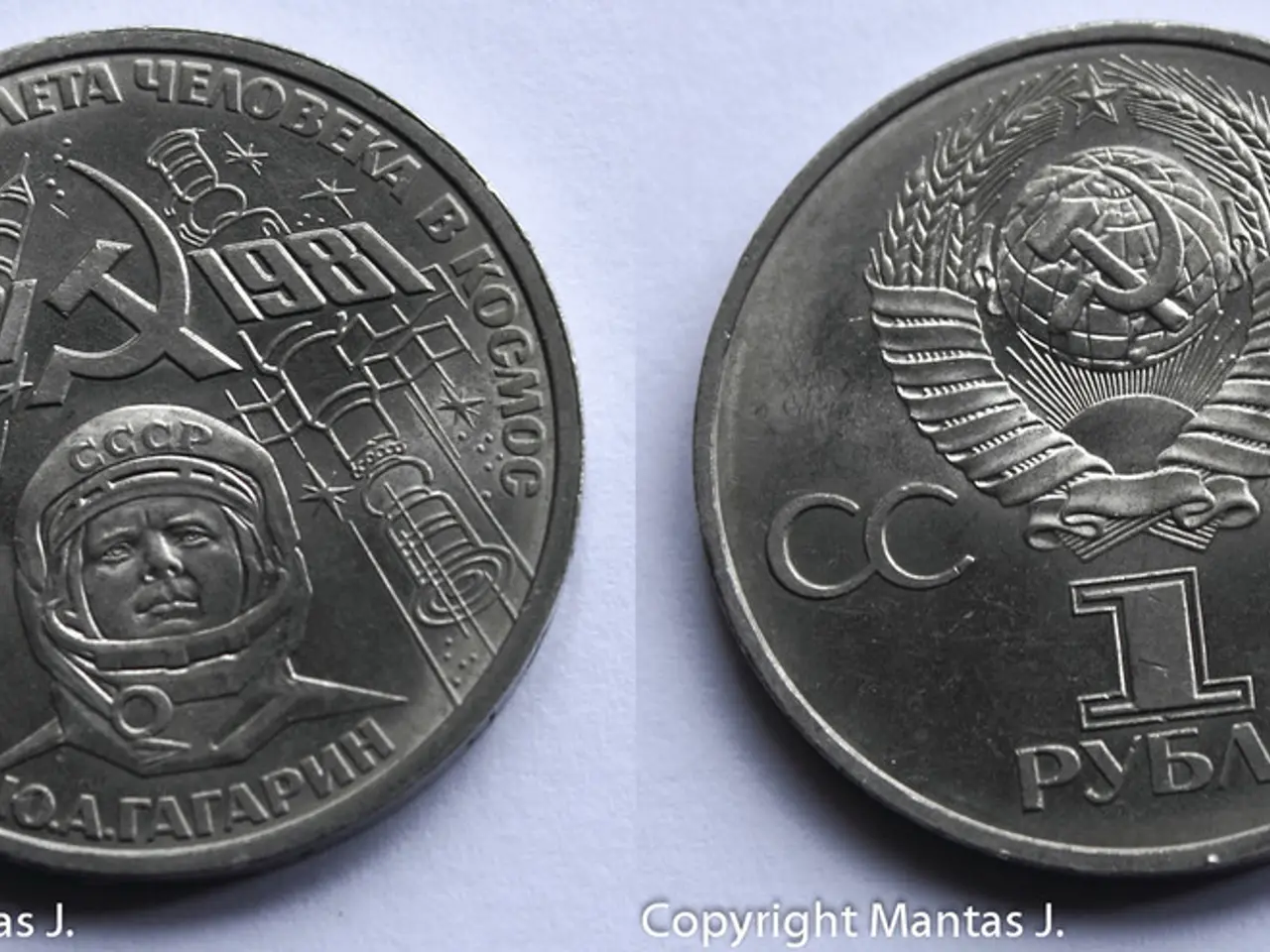Investing in Money Market Funds Instead of Savings Accounts? Proceed with Caution
- by Selma Schmitt
- 4 Min.
Seeking an investment option without daily interest? Then avoid this alternative. - Abolition of Daily Wage Interest?
Got tired of low returns from your savings account? You're not alone. The European Central Bank (ECB) has slashed interest rates eight times consecutively, leaving your savings virtually stagnant. The latest deposit rate has been hovering at two percent since early June, but experts predict no more rate cuts for now. "A rate cut in July would be a heated debate, with most observers favoring a rate pause," says Michael Heise, HQ Trust's chief economist. However, it's not off the table entirely. If the economy shows signs of weakening, the ECB could take further action.
Regardless of the ECB's move, the era of high-interest savings accounts appears to be in its twilight. While some banks offer promotional deals promising annual interest rates near three percent, these offers are often limited to a brief period and abruptly drop to below one percent afterward. Money market funds could be a promising alternative, offering slightly better yields. In fact, the first quarter of 2025 saw an additional 3.9 billion euros flow into money markets in Germany, according to a survey by the investment fund association BVI [1].
So, what exactly are money market funds, and how do they stack up against savings accounts?
Money Market Funds: A New Home for Your Savings?
Institutional investors have been using the money market to secure short-term liquidity or park their excess funds. The money market deals in high-quality, short-term debt instruments like bank deposits, deposit certificates, and short-term securities [2]. Now, private investors can also tap into the money market by investing in money market funds, which bundle these instruments [3].
| | Savings Account | Investment | Money Market Fund || --- | --- | --- | --- || Liquidity | High, limited transactions | High, or check-writing and debit capabilities with limits | High, with check-writing and debit access (limited) || Interest Rates | Low, but high-yield accounts might compete | Potentially higher, variable rates that can change | Often higher, variable rates that can exceed regular savings yields || Insurance Protection | FDIC insured ($250k), virtually no risk of principal loss | Not applicable | SIPC insurance for brokerage-held funds ($500k), market loss risk || Fees and Minimums | Generally low fees and minimums | Varies, often higher minimum balances and fees | Higher minimum balances and fees, affecting net returns || Risk | Minimal risk | Some market risk | Slight investment risk, especially if the fund invests in commercial paper |
While it's tempting to jump on the money market bandwagon, it's essential to consider the risks and rewards. Money market funds may offer higher yields and flexible access, but returns are not guaranteed due to volatile interest rates [4][5]. Savings accounts, on the other hand, might have lower yields, but they come with federal insurance and minimal risk. The choice depends on your risk tolerance, liquidity needs, and the specific interest rates offered by your financial institution [1][2][4][5].
[1] Investopedia. (2020). Money Market Fund. Investopedia. https://www.investopedia.com/terms/m/money-market-fund.asp[2] Investopedia. (2020). FDIC Insurance Coverage. Investopedia. https://www.investopedia.com/terms/f/fdic.asp[3] Fidelity. (n.d.). Money Market Funds and Accounts vs. Savings Accounts. Fidelity. https://www.fidelity.com/learning-center/trading-investing/investments/money-market-accounts-money-market-funds-vs-savings-accounts[4] Bankrate. (2020). Average CD Rates & T-bill Rates. Bankrate. https://www.bankrate.com/banking/savings/average-cd-rates/[5] NerdWallet. (2021). Money Market Account vs. Savings Account: Which is Right for You? NerdWallet. https://www.nerdwallet.com/blog/banking/money-market-account-vs-savings-account/
- In comparison to savings accounts, money market funds might provide higher yields and offer more flexibility, due to their investments in high-quality, short-term debt instruments.
- If considering a move from savings accounts to money market funds, it's crucial to weigh the risks, such as the potential for volatile interest rates, against the benefits, like higher yields and accessibility, to make an informed decision that aligns with your personal-finance goals and risk tolerance.





